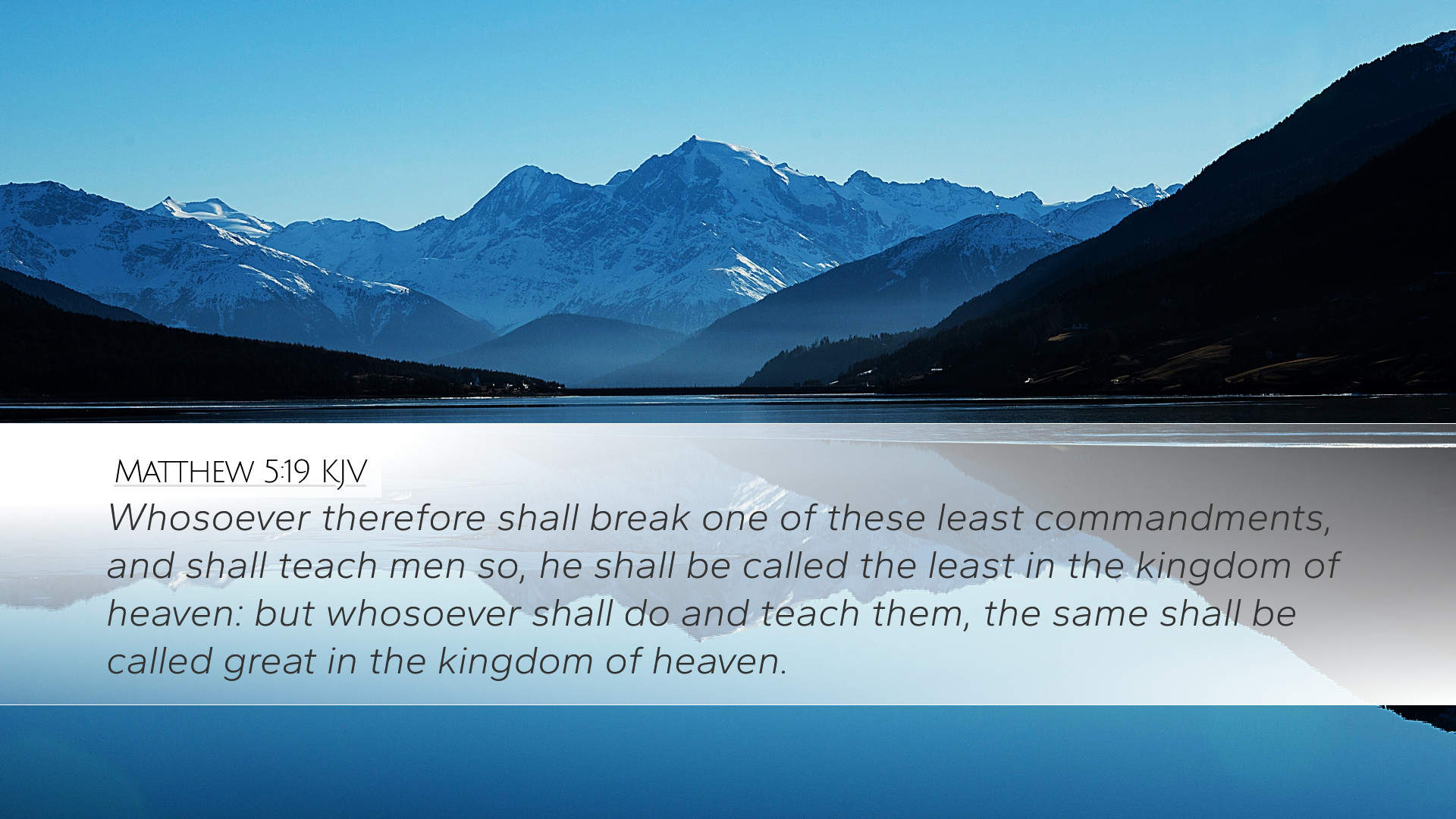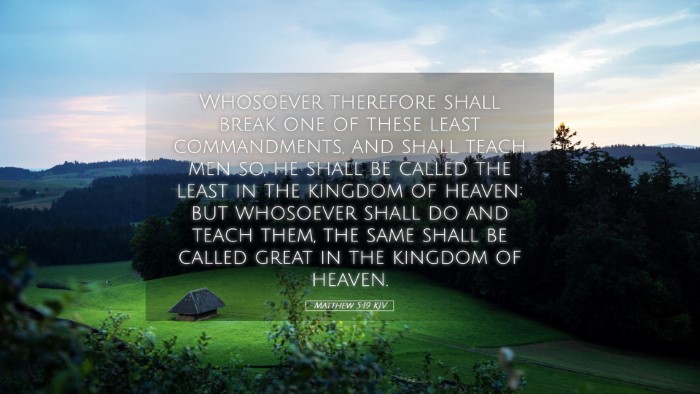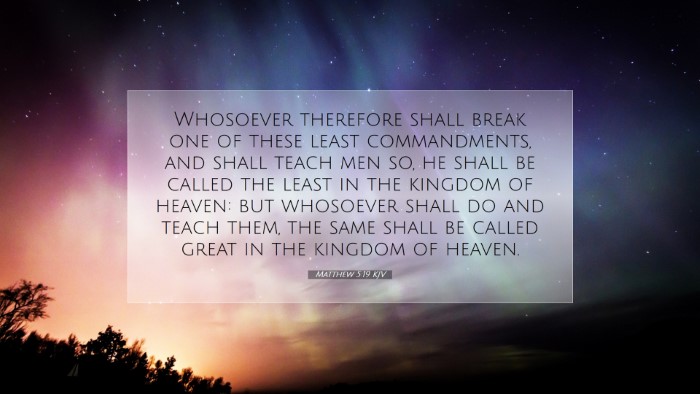Commentary on Matthew 5:19
Verse Text: "Whosoever therefore shall break one of these least commandments, and shall teach men so, he shall be called the least in the kingdom of heaven: but whosoever shall do and teach them, the same shall be called great in the kingdom of heaven."
Introduction
This passage forms part of Jesus' Sermon on the Mount and addresses the intricate relationship between the commandments of God and the expectations for those who seek to be disciples of Christ. Jesus highlights the significance of both obedience to His commandments and the instruction of others in the same.
Exegesis of the Verse
The verse opens with "Whosoever therefore shall break one of these least commandments," indicating that the commandments of God hold varying levels of significance, yet all are crucial for maintaining a righteous life. The reference to “least commandments” emphasizes that even what we might consider minor precepts are still valuable.
Albert Barnes notes that "the term 'least' is relative and does not imply irrelevance. God's law is comprehensive and perfect, and thus every command warrants respect and adherence."
Matthew Henry elaborates that the commandments reflect the character of God and are expressions of His will. Breaking them, even in small measure, undermines the integrity of one’s spiritual life.
Adam Clarke offers insights into the cultural context, indicating that Pharisees of the time tended to focus on the larger commands while neglecting what they deemed insignificant. Jesus' teaching challenges this erroneous perspective.
The Consequences of Breaking Commandments
The phrase "he shall be called the least in the kingdom of heaven" underlines the repercussions of disregarding even minor commandments. While the individual may still be part of the kingdom, their standing and influence would be diminished.
Matthew Henry points out that this does not suggest a loss of salvation but rather a lack of rewards and honor in the kingdom. It serves as a warning against laxity in spiritual matters.
Albert Barnes emphasizes that this declaration is both a reminder of responsibility and an admonition to instructors. Those who teach others have an even greater obligation to exemplify obedience to God’s commands.
The Role of Teaching and Doing
In contrast, the second part of the verse, "but whosoever shall do and teach them, the same shall be called great in the kingdom of heaven," highlights the dual role of doing and teaching. This reflects a holistic understanding of faith wherein action and doctrine are interlinked.
Albert Barnes discusses the transformative power of teaching with integrity. Those who embody the commands of Christ and impart them correctly to others reflect the heart of Christ's mission.
Adam Clarke expounds on the importance of both action and instruction, stating that great leaders are not merely authoritative figures but also servants who uplift others through their adherence and application of God’s word.
Theological Implications
This passage brings to light the interplay of grace and law within the believer's life. The descriptions of "least" and "great" within the kingdom of heaven echo the themes of reward and faithfulness prevalent throughout scripture.
Matthew Henry highlights that true greatness in the kingdom is not measured by external accomplishments but by alignment with the heart and will of God.
Moreover, the implications of this teaching are pivotal for church leaders and members alike. Albert Barnes remarks that the church should impart a reverence for God’s law, nurturing an environment where commandments are cherished and adhered to with diligence.
Practical Applications
- Emphasis on Holiness: Believers must pursue holiness in every aspect of life, honoring God’s commandments both visibly in personal conduct and invisibly in the heart.
- Integrity in Teaching: Leaders and teachers within the church should commit to living out what they teach, making their lives a testament to the truths of Scripture.
- Community Accountability: It is essential for church communities to hold each other accountable in matters of obedience to God’s commands, creating an environment where God's law is revered.
Conclusion
In Matthew 5:19, Jesus establishes a paradigm for understanding the relationship between obedience, teaching, and standing in the kingdom of heaven. By emphasizing both action and instruction, He lays a foundation for His followers to deeply consider their roles as practitioners of faith. This call to righteousness speaks volumes to pastors, students, and scholars of the Word, urging an integrated approach to faith that honors God in every commandment.


